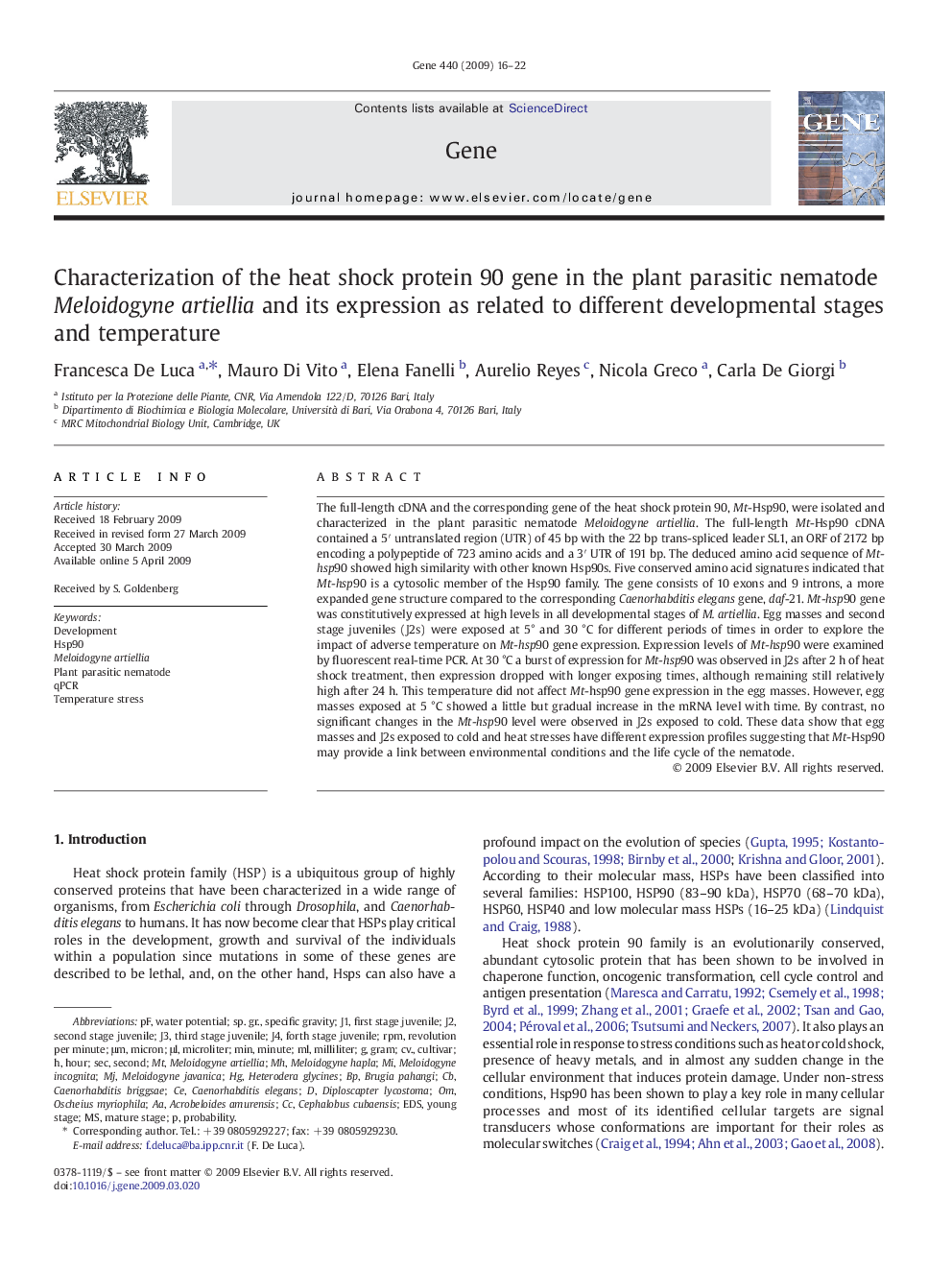| Article ID | Journal | Published Year | Pages | File Type |
|---|---|---|---|---|
| 2818872 | Gene | 2009 | 7 Pages |
The full-length cDNA and the corresponding gene of the heat shock protein 90, Mt-Hsp90, were isolated and characterized in the plant parasitic nematode Meloidogyne artiellia. The full-length Mt-Hsp90 cDNA contained a 5′ untranslated region (UTR) of 45 bp with the 22 bp trans-spliced leader SL1, an ORF of 2172 bp encoding a polypeptide of 723 amino acids and a 3′ UTR of 191 bp. The deduced amino acid sequence of Mt-hsp90 showed high similarity with other known Hsp90s. Five conserved amino acid signatures indicated that Mt-hsp90 is a cytosolic member of the Hsp90 family. The gene consists of 10 exons and 9 introns, a more expanded gene structure compared to the corresponding Caenorhabditis elegans gene, daf-21. Mt-hsp90 gene was constitutively expressed at high levels in all developmental stages of M. artiellia. Egg masses and second stage juveniles (J2s) were exposed at 5° and 30 °C for different periods of times in order to explore the impact of adverse temperature on Mt-hsp90 gene expression. Expression levels of Mt-hsp90 were examined by fluorescent real-time PCR. At 30 °C a burst of expression for Mt-hsp90 was observed in J2s after 2 h of heat shock treatment, then expression dropped with longer exposing times, although remaining still relatively high after 24 h. This temperature did not affect Mt-hsp90 gene expression in the egg masses. However, egg masses exposed at 5 °C showed a little but gradual increase in the mRNA level with time. By contrast, no significant changes in the Mt-hsp90 level were observed in J2s exposed to cold. These data show that egg masses and J2s exposed to cold and heat stresses have different expression profiles suggesting that Mt-Hsp90 may provide a link between environmental conditions and the life cycle of the nematode.
